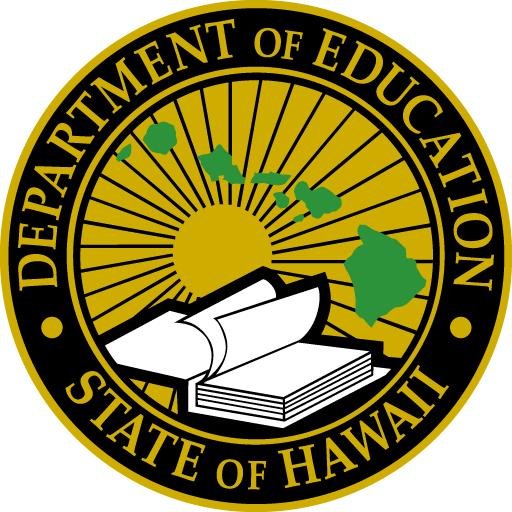Health education supports students’ health, resilience, total well-being and academic success so they may reach their aspirations, from early learning through college, career and citizenship.
Providing students with a high-quality, comprehensive health education equips and empowers them with the skills, knowledge and attitudes to address their current and future health needs and challenges. Health literacy is essential to students’ social, emotional, mental, physical, and cognitive development.
Health literate individuals are able to find, understand and use information and services to inform health-related decisions and actions for themselves and others. This contributes to resilience, well-being, healthy relationships and a positive quality of life as well as prevents and reduces the risk of disease, injury and death.
今日健康教育 反映了日益增多的研究强调:
- 支持整个儿童的健康、适应力和全面幸福(例如学生的社交、情感、心理、身体和认知发展)。
- 培养符合国家健康教育标准的健康素养技能。
- 利用与优先风险主题相一致的相关功能信息构建功能知识。
- 加强与家庭和社区的联系。
- 通过互动和社交学习体验来满足学生的需求和兴趣。
- 通过安全、包容和关怀的信息和学习环境培养支持积极健康行为的态度、价值观和信念。
这 National Health Education Standards: Achieving Excellence (NHES) are fused on developing students’ health literacy skills to proficiency within and across grade levels:
- 标准 1:理解概念 – Students will comprehend concepts related to health promotion and disease prevention to enhance health.
- 标准 2:分析影响 – Students will analyze the influence of family, peers, culture, media, technology and other factors on health behavior.
- 标准 3:获取信息、产品和服务 – Students will demonstrate the ability to access valid information, products and services.
- 标准4:人际沟通 – Students will demonstrate the ability to use interpersonal communication skills to enhance health and avoid or reduce health risks.
- 标准 5:决策 – Students will demonstrate the ability to use decision-making skills to enhance health.
- 标准 6:目标设定 – Students will demonstrate the ability to use goal-setting skills to enhance health.
- 标准 7:自我管理 – Students will demonstrate the ability to practice health-enhancing behaviors and avoid or reduce health risks.
- 标准 8:倡导 – Students will demonstrate the ability to advocate for personal, family and community health.
While the primary focus of Health Education is the development of health skills, these skills must be addressed in conjunction with functional information in the context of priority risk topics. Standards-based health education must be age and developmentally appropriate, medically accurate and provide factual information in all priority risk topics:
- Mental and Emotional Health.
- Healthy Eating and Physical Activity.
- Personal Health and Wellness.
- Safety (Unintentional Injury Prevention).
- Violence Prevention.
- Tobacco Use Prevention.
- Alcohol and Other Drug Use Prevention.
- Sexual Health and Responsibility.
Note: Health Education in prekindergarten is aligned to the Hawai‘i Early Learning and Development Standards (HELDS).
Course Requirements for Health Education
所有小学年级都必须接受健康教育。
Middle/intermediate schools must offer courses that allow all students to meet Hawaiʻi՚s Health Education standards and performance indicators for Grades 6-8. One semester (0.5 credits; 60 hours) of Health Education in each middle/intermediate school grade is strongly recommended but not required.
In high school, a one-semester course (0.5 credits; 60 hours) in Health Education is required for graduation.
A variety of Health specialized elective courses (e.g., Peer Education) are available at the secondary school level.
有关初中升学和高中毕业的要求,请参阅 Board Policy 105-1 Academic Program, Board Policy 102-9 Middle Level Education Promotion Policy, 和 Board Policy 102-15 High School Graduation Requirements and Commencement.
Wellness Guidelines for Health Education and Nutrition Promotion
Health education and nutrition promotion provide the instructional foundation that is necessary to prepare students to make lifelong healthy decisions and practice healthy behaviors. This component area of the Wellness Guidelines includes school-wide promotion of nutritious meals and snacks as well as quality health education. Click for more information about our 健康指南.
Guidelines for health education and nutrition promotion are organized around four key components:
- 健康教育课程的教学内容重点关注支持健康饮食的知识和技能,并与 HIDOE 健康教育标准保持一致。
- 小学学生每周接受健康教育时间不少于45分钟,中学学生每周接受健康教育时间不少于200分钟。
- Nutrition education includes culturally relevant activities that are ‘āina-based and hands-on, such as food preparation, taste-testing, farm visits and school gardens.
- 所有学校食品和饮料营销必须符合 营养指南。其中包括但不限于学校出版物、自动售货机外部、海报、横幅、校内电视和记分牌。
学校促进良好营养的方法
- 校园里展示了有关营养食品的积极信息。
- 供学生使用的自动售货机只售有水。
- 学校餐食尽可能从零开始制作,包括新鲜出炉的全麦面包。
- 没有食物含有反式脂肪。
- 用餐期间,学生可以免费获得饮用水。
- 欢迎各班级参观食堂厨房,学习如何准备健康食品。
- 向学生及其家长推广健康的早餐、午餐和零食。
- 教学花园展示了食物是如何生长的。
Want To Learn More About Health Education?
Additional information may be found in the following resources:
- National Health Education Standards in Hawai‘i
- 学习健康设计
- Why Health Education Matters
- Health Education Standards and Topics Overview
- Healthy Behavior Outcomes
- Reviewing Instructional Materials for Health Education
联系信息
健康教育计划
Phone: (808) 784-6423
电子邮件: [email protected]
资源
- National Health Education Standards in Hawai’i
- Reviewing Instructional Materials for Health Education
- 健康指南
- 2022 Hawaiʻi School Health Profiles – Highlights Report
- HIDOE 健康指南
- HIDOE Sexual Health Education
- 学习健康设计
- 你很重要!健康资源
- Hawai‘i Youth Risk Behavior Survey
- 卫生部学校卫生
- CDC Healthy Schools
- CDC Adolescent and School Health
- Hawai‘i Island School Garden Network
- Hawai‘i Early Learning and Development Standards
- 全国幼儿教育协会 (NAEYC) 资源
- 全国同行计划专业人员协会 (NAPPP) 计划标准
